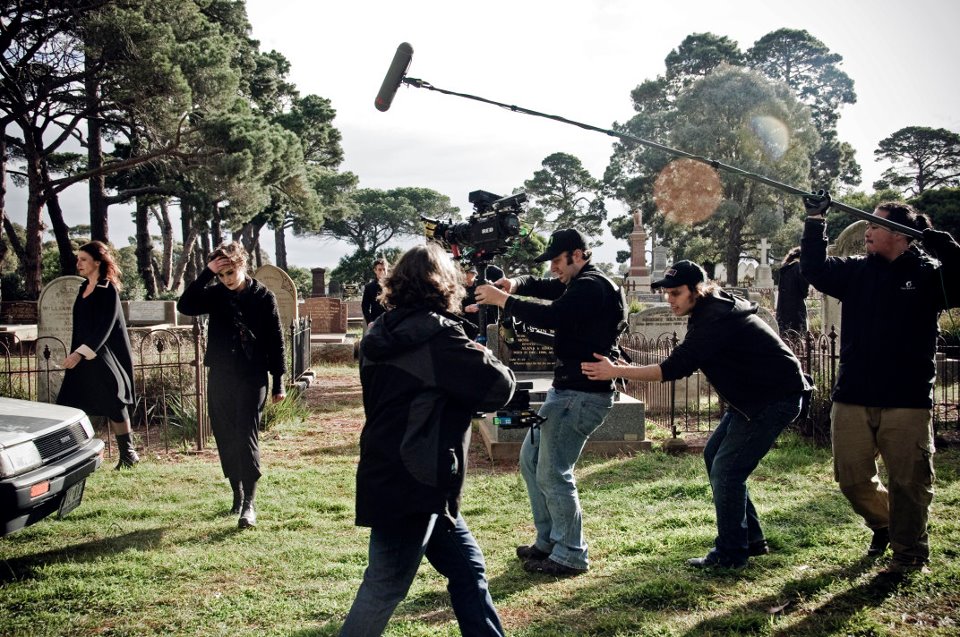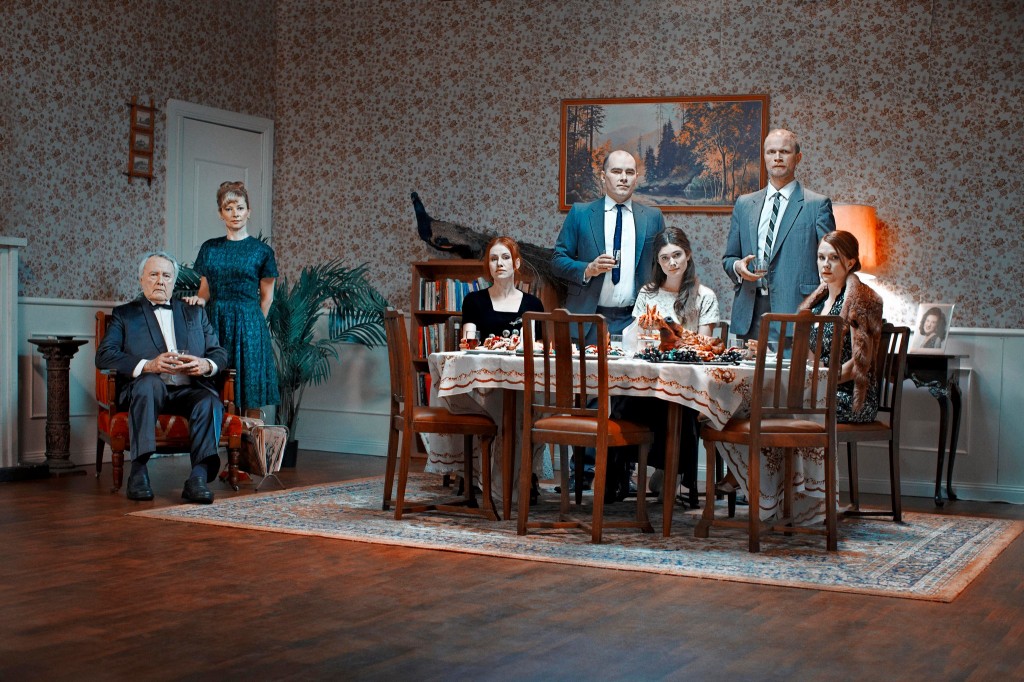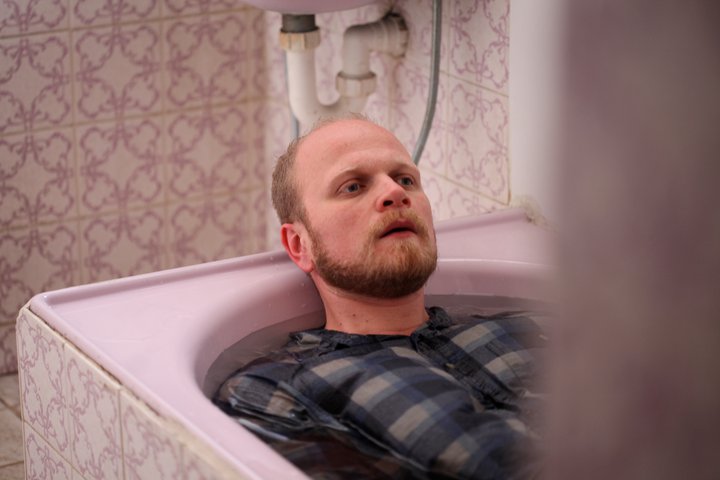A favourite of the ReelGood crew.
What first got you interested in filmmaking and when did you decide to pursue filmmaking as a career?
I started making films when I was about 9 or 10. A friend and I used to spend our weekends making films with her parent’s camcorder. I’m sure they were terrible, but it was an excellent introduction to in-camera editing and coverage! In Year 8 I was trained as a sound tech for our school’s swing band, but I hated it, so was given a camera and told to film them instead. It reignited my love of documenting everything. Around that time my mum introduced me to Sally Potter, and her film Orlando staring Tilda Swinton. That film just blew my mind. Up to that point I’d never seen a film like it. I remember watching it and thinking ‘This is it, I’m going to be a director and make films for the rest of my life.’ I started doing short courses at VCA and making films on the weekends. All those early films are pretty bad, but I was very serious about them. I was 16 and holding casting calls and production meetings and building sets.
I’d always dreamed of going to the VCA, and started there straight out of high school. I did a year and was completely overwhelmed being the youngest, surrounded by all these older people with degrees and life experiences. I felt I had nothing to make films about yet. So I quit and went away for a few years to work, travel, study another undergrad, before I missed filmmaking and couldn’t stop thinking about it. I knew then that I had to be a filmmaker, so I reapplied to VCA and haven’t looked back since. It’s probably unhealthy but it’s all I ever think, talk, do, dream about. I’m obsessed.
What are some of your main influences, both in your style and content?
As I mentioned above, the film Orlando has been a huge influence on my work, as well as Potter’s debut feature The Gold Diggers. The black and white cinematography is superb. I’ve always had a fascination with parallel worlds and the use of time within space, so anything along those lines sparks my interest. The stuff I make is often pretty surreal, and heavily production designed and I’ve made a few films with sets. I’ve always looked to filmmakers like Peter Greenaway and his early films like A Zed and Two Noughts, Drowning By Numbers and The Cook, The Thief, His Wife and Her Lover. His worlds are strange but you completely accept them, and his production design and sets are just the best. Claire Denis’ Beau Travail has never left me; it’s got the best ending to a film I’ve seen in a long time. All of Fellini’s films are fantastic, Roma being a favourite of mine…that terrific scene on the freeway, the Cardinal fashion show and the scenes of families eating giant bowls of pasta in the street. I love having what I call ‘Fellini Dreams’, dreams and daydreams of strange scenarios and situations. Give me a giant bowl of spaghetti and a glass of red wine any day, and I’ll be the happiest.
I love David Lynch’s style as well. I was pretty into him a few years ago, especially his short films. My films often reflect and are very inspired by my filmmaker obsession of the year. I’m interested in making films that have a lot of layers through the concept and visual imagery. If an audience watch it more than once, they should see something new each viewing. That’s hard with a short film, but I’ve never been interested in making a straightforward and simple story. Where’s the challenge and excitement in that? I’d rather make something really rough round the edges, a little weird or complex with the chance that it won’t work, than something that is glossy or ticks boxes. Sometimes I think of them like essays. I start with a question or topic I’m interested in, and then I obsessively research it, and the script develops out of that. And then it keeps developing throughout the entire filmmaking process as I discover new links and tangents and ideas. Then in the edit is when I fine tune my argument, and present my findings. I’ve always approached filmmaking as an art form, and experiment, rather than a commercial aspect, although I’m now trying to combine the two. I look to filmmakers like Potter, Lynch, Roy Andersson and even Tim Burton and Wes Anderson, who have made a commercial success of their distinctive styles in hope that It’s possible for me to also find an audience on a wider scale.
As well as filmmakers and films, I’m also hugely inspired by art and literature. Whenever I feel stuck, I go back and read Peter Carey’s short stories The Fat Man in History. They’re such strange snippets of life. Jorge Luis Borges’ The Garden of Forking Paths is pretty cool. It’s that time/space/parallel world thing again!
I look to artists like Francis Bacon and David Hockney, and contemporary American photographer Gregory Crewdson, who creates these incredible otherworldly images that require an entire crew to create for inspiration in other art forms. I aspire to make each of my films as visually rich in every frame as Crewdson’s images. The surrealist movement, Dali’s work and Luis Buñuel whose film’s The Discreet Charm of the Bourgeoisie, The Exterminating Angel and the dinner party scene from The Phantom of Liberty, where guests at a dinner are seated on toilets really inspired my film The Zoo. Recently a friend showed me Tarsem’s The Fall. Holy Moly if you haven’t seen it, please do yourself a favour and find it now. It’s like a Christmas dinner in film form.
Richard Mosse, who I discovered at the Venice Biennale last year, makes these insane extremely high production values video art/documentary films. My favourite of his is The Enclave, a 16mm infrared film made in the Democratic Republic of the Congo. Seeing these bright pink images, all on steadicam, and projected onto 6 screens hanging interspersed throughout a dark room with a roaring soundtrack was just this completely immersive experience. Not one person left the room for 40 minutes. Even when it ended I found it difficult to leave. I think that experience will always stay with me, and has certainly inspired what could be possible within my own work.
I could keep bangin’ on about my influences all night, but I’ll restrain myself for the sake of anyone who has managed to read this far! I keep thinking of more, but I’ll stop now.
What element of filmmaking do you enjoy the most?
I love the very early stages of conception, and the exciting research hole I fall into. One year I got really into researching serial killers from the 40’s-60’s and spent 6 months reading about them and weird tangents off that before I even began to form the story. A guy called John Christie became my main focus. Brett Whitely did a series on him in the 1960’s, which was pretty cool. I ended up compiling a huge amount of research into a Tumblr blog, which became my visual diary. I found it so useful to see the development of the film over the year. I’ve since done it for every film since. I’m obsessed with collecting images and references; it’s one of the most enjoyable parts for me. I keep a blog that I post to nearly every day that is my main go to visual diary and smorgasbord of references. I collate all my photos, music, articles and videos that I know I’ll come back to later.
I also work as a Production and Costume Designer, and so those stages of pre when I’m directing my own stuff and working closely with a PD to develop the look of the film is so exciting. Once it’s all come together and I’m standing on set, I feel so at home. Directing, being on set with the actors and crew and making films is the one thing I feel really confident doing. Like many filmmakers out there, I’ve always felt like the weird dorky oddball, so getting to hang out with other weird dorky oddballs and make films is such a treat and a privilege.
What are some of the bigger hurdles you’ve faced in filmmaking, either in a particular film or in a broader sense?
The obvious answer here for any independent filmmaker is money. I think it’s been mentioned in nearly every one of these interviews, which in itself is ridiculous. It just shouldn’t be this challenging to make art. It is getting easier though with the advent of new technologies. But there’s only so much you can do off the back off favours and small time bank robberies.
I think personally one of my biggest hurdles, apart from an empty savings account, is self-belief in my own abilities, and not getting bogged down with jealousy. Facebook is terrible for advertising others’ successes. I went to film school with a lot of very talented and confident directors, and I always admired their self-belief that they were good enough, capable enough, to do certain things. I spent the first couple of years freaking out that I wasn’t good enough, and not having the confidence to believe I could be just as talented as them. In my last year of film school I threw caution to the wind and made what I really wanted to and didn’t worry about anyone else, and I think the end result is my best film.
Although I find a lot of support within friends and family, I still find that self-belief in my own abilities really difficult. I’ve seen others around me get jobs, direct professional things, get funding, generally begin to move up and forward, and although they’re really talented and hard working, it’s also because they’ve been proactive and put themselves out there. I’m still struggling with that step. I look at what other people are doing and know I have every ability to be able to do that as well. I just need to take that leap and believe in myself a bit more. Easier said than done!
What do you think makes a great film?
Passion from the filmmaker, number one. If the filmmaker truly loves what they are making, then it really shows through in the spirit of the film. That sounds really obvious, but I think there are films floating around out there that have just been made…and they can be great too, but the greatest films in history are often the ones where you can just tell the filmmaker is having the best time making it.
Film is so subjective anyway, so whatever I think makes a great film, is such a personal thing. The films I love the most are all very creative and unique in their approach to style, design, story structure, and cinematography, or they just somehow got me. They may not be perfect in ever sense, but they are full of life and spirit and are special art forms in themselves. A great film is one I am completely captivated while watching, is one I think about for weeks on end, that I keep re-watching and coming back to, that makes me laugh or cry or really feel something. It doesn’t have to be some high art/concept film, or something that’s on the IMDB top films list to be a great film. One of my absolute favourites that is still a complete winner, one which I’ve happily watched more than any other film is 10 Things I Hate About You. Now that is a great film. Honestly, that scene of Heath on the bleachers. The. Best.
Do you think success in short film translates to success in feature filmmaking?
You’d think so, but I’m sure it’s not always the case. The idea of making a feature is very daunting, but also exciting. Short films are the perfect vehicle for refining your filmmaking skills. There’s a real art form to the short. Having only 10 or so minutes to engage an audience and tell a story is quite the challenge. The more you practice, the better you get. Shorts are perfect for that. They’re also the best way to test out ideas to see if they work, before committing them to an entire feature.
Do you engage in social media as part of your work? Do you think social media platforms are becoming a bigger part of filmmaking?
I think using social media in film is really important, and I’m trying to incorporate it more each time. From websites like Pozible, and crowd funding through social media platforms like Facebook, to recruiting crew, cast, or that weird prop someone might have. It’s a way to build hype and interest, and to keep those involved in the loop. Social media is a very important tool within the world of self/film promotion. Young independent filmmakers and students are really using this to their advantage. Lena Dunham is a perfect example of someone who used social media to get noticed and get her work out there. While in collage she made short films and web series that she uploaded to YouTube. She also made two features before she was 25 and promoted them pretty heavily online. Tavi Gevinson is a prime example of someone who has used social media to get where she is today. She’s not a filmmaker but she’s a creative force to be reckoned with, and was smart enough at 11 to realise the power of the Internet.
I think it’s yet to be utilised to it’s full potential within the Australian feature film industry. Especially since their publicity budgets are usually quite limited.
What’s on the horizon?
Lots of things for the next couple of months! I’ve recently made a new short film, The Cosmonaut, so I’m keen to get it out there now. I’m working on a couple cool of shorts as costume designer/art director, and I’m looking forward to making a video clip for a friend’s new record. There’s the possibility of a larger Production Design project towards the end of the year, and I’m wanting to get back to my own filmmaking and writing, and start work on a couple of feature ideas I’ve got bubbling away. I’m planning on taking my own advice and putting myself out there for more professional work more as a director, and also a costume/production designer and see what happens. I’ve been building my folio for a while and I’m keen to start chasing down some more work. It’s high time I started some door knocking. The rest of the year looks busy, which is great.
Do you have any advice for young filmmakers?
Pick up a camera and make something. Don’t hesitate or make excuses like ‘no money, no equipment, nothing to make a film about’. Make a film on your iPhone about your big toe. It seriously doesn’t matter what it’s about, or whether it’s crap. Have no expectations of yourself or your films, and don’t be afraid to experiment. As Nike put it well, just do it. Most filmmaker’s first films are rubbish. All of my early films were made on a borrowed handicam with reluctant friends or family and a box of homemade costumes. They were weird and rubbish, but I didn’t care. Watch films, lots and lots of films of every type and genre, features and shorts. Try this website: www.shortoftheweek.com it’s excellent for inspiration. YouTube the early films of your favourite directors and be surprised at how amazing/awful they are. Look at art, read the paper, read short stories, people watch on the tram, there’s always something to learn or look at. Find what inspires you, gets you excited, and then make your own crazy thing. Find other people who are as mad about film as you. Films are hard to make on your own, and there are plenty of people as mad and as eager as you out there. Go crew on student films, it’s the best way to meet people. Learn to drive; you’ll be 100% more useful on a set. Be bold, be confident, do your own thing and try out your own ideas and experiments. Films are expensive, but they can also cost nothing. But what do I know? I’m also a young filmmaker, and like every other young filmmaker, I’m bullshitting my way through and making it up as I go along, so you should too.
For more Featured Filmmakers, click here. If you’re digging ReelGood, sign up to our mailing list for exclusive content, early reviews and chances to win big!


